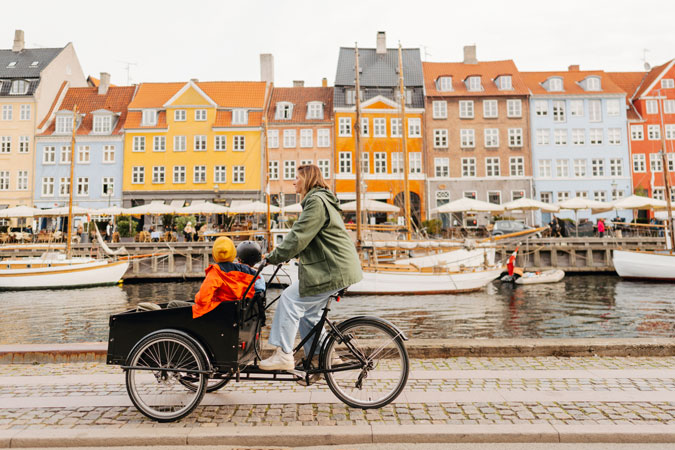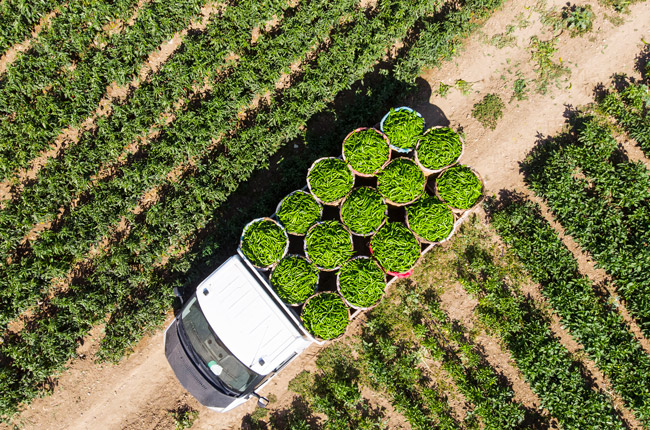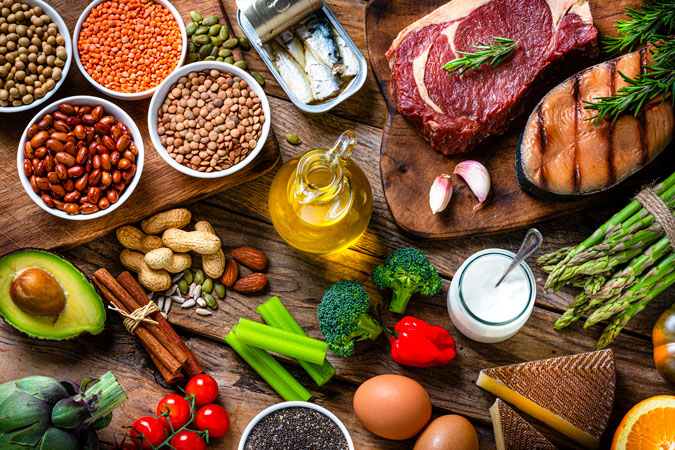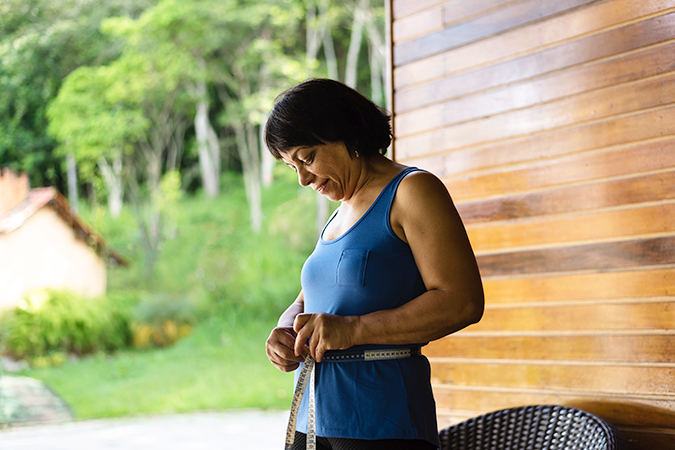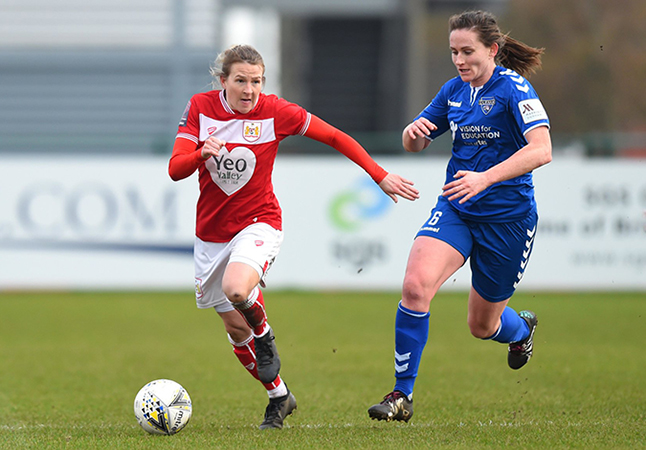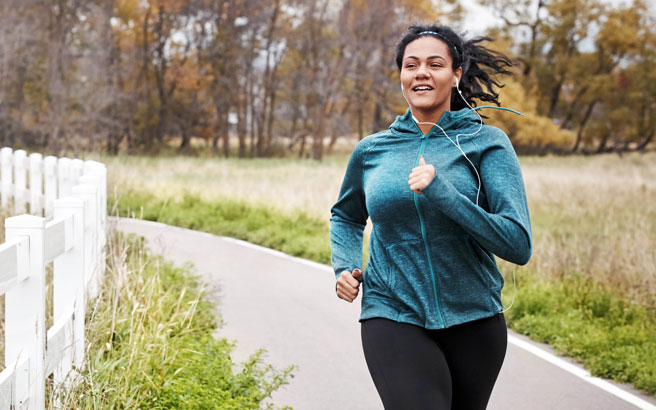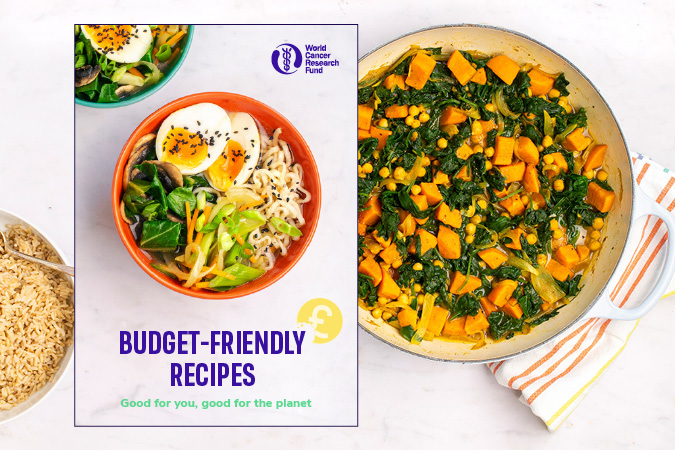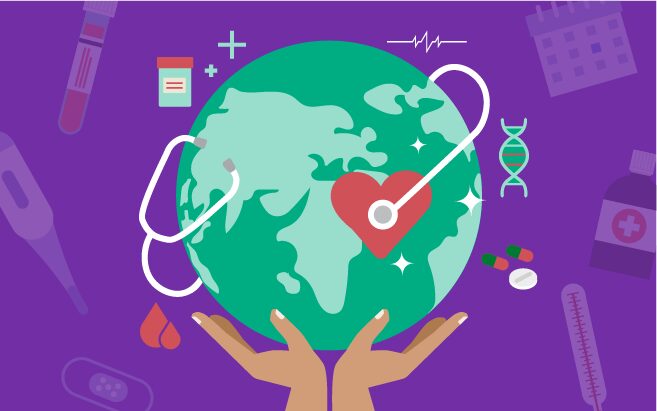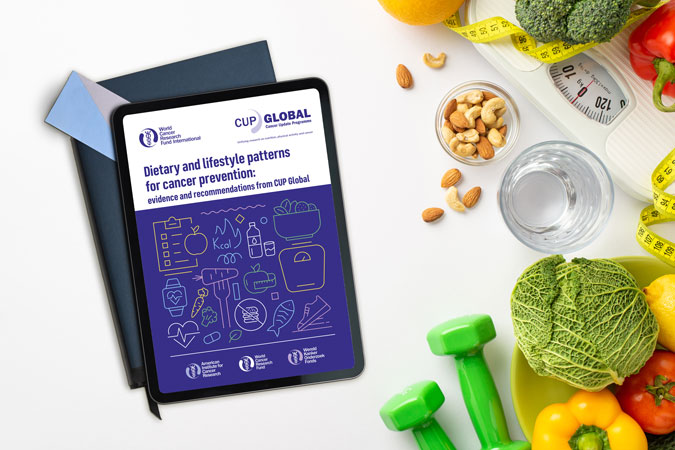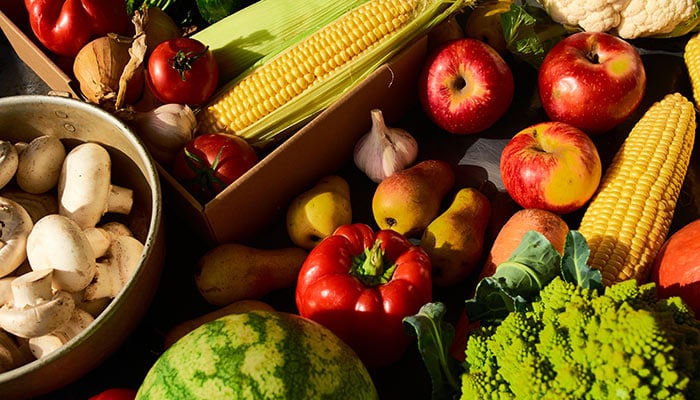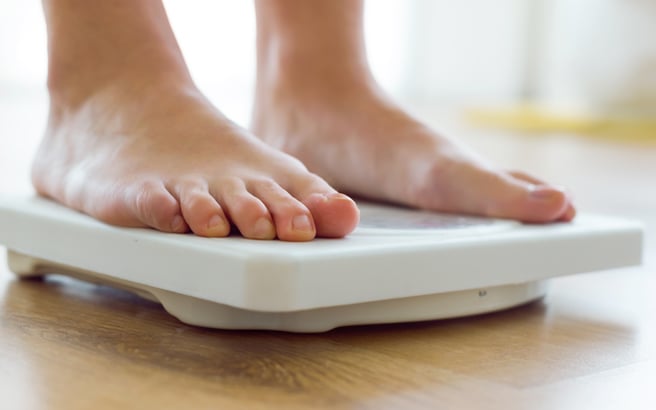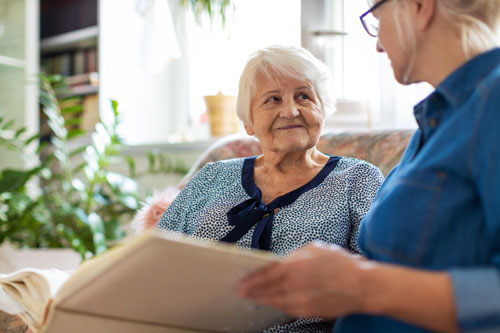Achieving a balanced combination of exercise and controlling our waistline is far more effective in reducing our risk of cancer than doing just one or the other, according to a study funded by World Cancer Research Fund.
In the world’s first study looking at the effectiveness of combining these measures, we found that only doing one is not enough to lower our risk of cancer. The study, which looked at more than 300,000 people, found that:
- People not meeting World Health Organization (WHO) guidelines on waist circumference are at 11% greater risk, even if they are physically active.
- People not meeting WHO guidelines for physical exercise are at 4% greater risk, even if “abdominally lean” (ie they have a smaller waist).
- Achieving neither means a 15% greater risk.
The study – WHO guidelines on waist circumference and physical activity and their joint association with cancer risk (Lead researcher: Prof Michael Leitzmann, University of Regensburg) – was published in the British Journal of Sports Medicine.
Prof Michael Leitzman
We're excited about the insights we’ve uncovered regarding the interplay between waist circumference and physical activity in reducing cancer risk. Our findings highlight the value of addressing multiple factors together, showing that both maintaining a recommended waist size and being physically active are critical for cancer prevention. This research reinforces the importance of practical, achievable changes that can have a meaningful impact on health over time.
Dr Helen Croker
This is the first study to examine the independent and combined impact of waist circumference and physical activity levels. The findings underscore the importance of a holistic approach instead of focusing on a single factor to reduce cancer risk. Maintaining a healthy weight and, in particular, having a waist circumference within the recommended level and being physically active, along with eating a healthy diet, are all crucial steps to reduce cancer risk. People can start by making small, sustainable changes like incorporating regular movement into daily routines or choosing healthier food options.
World Cancer Research Fund has been at the forefront of cancer prevention in the UK and globally for decades. We developed Activ8, a free 8-week programme to encourage people to move more, eat well and reduce their cancer risk. Every step is backed by science and brings our Cancer Prevention Recommendations to life.
At World Cancer Research Fund, our mission is to live in a world where no one dies from a preventable cancer, so of course they’re all designed to help you live a healthier, happier cancer free life!
25 things for 2025
1. Drink more water!
The human body comprises around 60% water, so drinking enough water will help improve your physical performance and increase your energy levels.
2. Eat more beans, legumes and pulses
They’re a great source of protein, iron and fibre, they’re much cheaper than meat and good for the climate.
3. Move more!
Being physically active is important to live a healthy life and it’s one of our Cancer Prevention Recommendations.
There’s also strong evidence that being active protects against cancers of the colon, breast and endometrium.
4. Eat more fibre
We should consume at least 30g of fibre a day. Eating a healthy balanced diet that contains plenty of fibre-rich food helps to support your general health and it helps to reduce your risk of bowel cancer.
5. Drink less alcohol
We have strong evidence to show consuming alcoholic drinks is a cause of 7 types of cancer and that there is no “safe” level of alcohol. Why not try a new mocktail recipe instead?
6. Eat more fruit
Fruit is a vital part of a healthy and balanced diet. It contains a variety of important vitamins, minerals and natural chemicals that our body needs.
7. Check your body regularly
Get into the habit of performing regular self-checks at home. As soon as you see or experience something new or something unusual, see a doctor. Even if it’s nothing, getting checked earlier is always better.
8. Eat more vegetables
Just like fruit (No6), it’s important to eat a range of vegetables. We have some evidence that eating non-starchy vegetables helps protects against some cancers of the mouth and throat.
9. Drink fewer fizzy or sugar-sweetened drinks
There’s strong evidence that regularly having sugar-sweetened drinks lead to weight gain over time, which can increase the risk of 13 types of cancer.
Stick to water or other unsweetened drinks, such as tea and coffee.
10. Eat less processed meat
There is strong evidence that consuming processed meat is a cause of bowel cancer. Ideally, you should cut back on all the bacon, sausages, pork pies and ham that you eat.
Research in 2023 showed that 8,500 bowel cancer deaths per year could be prevented if people stop eating processed meat.
11. Eat less red meat
Just like with processed meat, there’s evidence that too much red meat increases your risk of bowel cancer. But we don’t suggest you completely cut out red meat – it’s a good source of nutrients such as protein, iron, zinc and vitamin B12 so can form part of a healthy, balanced diet.
Our Recommendation is to eat no more than 3 servings of red meat a week. Opt for white meat and fish instead, or go meat-free.
12. Get better sleep
Sleep is vital for a healthy life, so whether it’s ditching screens before bed or establishing a routine, better sleep will have many benefits.
13. Opt for more wholegrains
Wholegrains are the seeds of cereal plants, such as wheat, barley, quinoa, oats, rye, maize (corn) and rice.
There’s evidence that they can decrease the risk of bowel cancer, as well as being a rich source of copper, zinc and dietary fibre.
14. Sign up to Activ8
If you’re looking to get more healthy – whether that’s increasing your activity levels, maintaining a healthy weight or eating better, why not join our FREE 8-week interactive programme?
It will be sent straight to your inbox 📧
15. Eat less fast food
There’s strong evidence that diets containing high amounts of “fast food” and processed foods high in fat, starches and sugars are a cause of weight gain, overweight and obesity, which has been linked to cancers.
A study in 2023 linked ultra-processed food to an increased risk of mouth and throat cancers.
16. Wear SPF and protect yourself from the sun
Each year, around 332,000 people are diagnosed with skin cancer globally, but a high-factor suncream, the right clothing and avoiding the sun between 11am–3pm can help decrease your risk.
17. Try a new recipe
Not only is it fun to cook new dishes, but it also introduces you to new flavours and can get you out of a rut of always cooking the same thing.
We have more than 350 healthy recipes to try – many of which are budget friendly, so you don’t have to break the bank.
18. Eat more protein
Protein is important for us maintaining our health and plays a role in maintaining your muscles, repairing any injuries, keeping your weight down (it keeps you fuller for longer), and it provides energy.
You don’t even need to eat lots of red meat to keep your levels up – nuts, seeds, eggs, wholegrains and pulses are all good sources of protein.
19. Get outside more
Keeping active is important and taking a break from screens and connecting with nature is good for both our mental and physical health.
Plus, spending 15 minutes a day in the sunshine helps restore the body’s vitamin D levels.
20. Ditch the sunbeds
If you want to get a tan, faking it is much safer.
21. Walk an extra 10 minutes a day
Get off the bus/train a stop early, or leave the car at home and walk to the shops. Small things add up quickly and soon you’ll prefer two legs over four wheels.
22. Sign up to our monthly newsletter
Get regular updates on our cancer prevention work, the latest research, health tips, new recipes and much more…
23. Have a meat free day
Or, why not try Veganuary? We’ve already mentioned that limiting red and processed meat is important for cutting your cancer risk.
And a 2022 study showed that following a vegetarian diet could cut your risk of cancer by 14%, so why not explore meat-free recipes.
24. Try a new sport or activity
If you’re in a slump or feeling generally demotivated, why not try something new? And, if sport isn’t your thing, gardening or yoga could get you moving more.
Alternatively, why not join a local group, such as a choir or a craft meet-up. Not only will you be learning something new, but you become part of a community, which provides multiple health benefits.
25. Change one thing
If this list has made you feel overwhelmed, don’t feel as you have to do them all. Start by picking just one thing to do differently and then build up from there. Before you know it, you’ll be thriving!

Sign up to hear more from us
We’ll bring health advice and tips, tasty recipes, the latest cancer research and much more direct to your inbox.
Science and football – while they may not seem like they have much in common, the disciplines meet in the person of Dr Frankie Brown. Frankie is an immunologist and former member of Scotland’s women’s team who has represented her country 96 times on the international stage.
Our funding helped Frankie realise her other dream of researching ways exercise can benefit those living with and beyond cancer.
Helping people with blood cancer
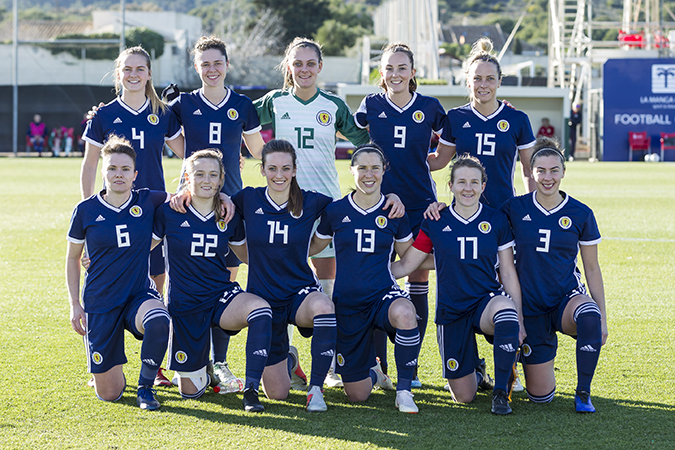
Frankie Brown with her Scotland team-mates
Under Dr Campbell from the University of Bath, Frankie worked in a team on a project funded by us investigating the effects of exercise on the health of patients with chronic lymphocytic leukaemia, a form of blood cancer that affects around 4,000 new people every year in the UK.
The team evaluated the safety and feasibility of a progressive exercise programme for these patients – many who were over 60. Essentially, they tested a “recipe for how to run a big study” more effectively, and even adapted it to continue successfully during the COVID pandemic.
She was inspired by her own background as a professional footballer, as well as her personal experience with cancer:
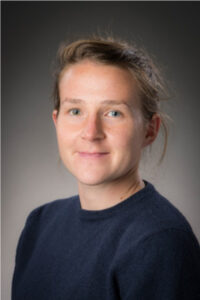 “When I was finishing up my PhD, my mum died of breast cancer. That was a real trigger moment for me to look more into oncology. I just couldn’t get my head around it – she had been so healthy. I would wonder, what’s going on here?
“When I was finishing up my PhD, my mum died of breast cancer. That was a real trigger moment for me to look more into oncology. I just couldn’t get my head around it – she had been so healthy. I would wonder, what’s going on here?
“I already knew a lot about health and monitoring my body for football. I started playing football very young, playing with my little brother, and I haven’t stopped since. I was in the Scotland under 17s, then the under 19s, and got into the full squad when I was 21 and was there for 10 years.
“Having spent my whole life in a high-performance environment, with everything being tested and monitored, I became more aware of how my body reacts to even very small shifts in circumstances and situations. It wasn’t hard for me to see how those tiny changes that are so important to athletes can be important for everybody.”
This inspired Frankie to become a researcher, where she found herself on the team led by Dr Campbell and funded by us. There were, however, some setbacks along the way – the biggest being the COVID-19 pandemic. Thanks to the flexibility of our funding programme, Frankie says she and the rest of the team were able to pivot from designing the programme to be in-person, to buying the participants exercise bikes and running a group session over Zoom.
“We had to shift the whole design of the exercise sessions to be home-based and World Cancer Research Fund allowed us to deliver exercise bikes to the participants’ homes. Without that, the trial would have fallen apart.“
‘The more muscle mass you have as you get older, the more independent you will be’
The data showed a 2% increase in lean mass in the exercise group compared with a 0.4% decrease in the control group. This is a significant benefit, as Frankie explains: “The data we have now and the study we’ve done shows that any gain a patient can make with their performance can make a huge difference to their own wellbeing.
“An increase in lean mass – in other words, in muscle mass – in these patients is a huge thing, especially in people over 60. The more muscle mass you have as you get older the more independent you will be. One of our participants lived up some stairs, and whenever I think about the study, I think about them and hope that my work has made it easier for them to get the shopping up and down to their home.”
These results have informed the design of a larger study where Frankie and her team will assess the tumour-suppressing effects and mechanisms of exercise in humans.
Frankie is very vocal about the impact of our support on her work: “In my experience, World Cancer Research Fund has been incredibly supportive of me as a young academic. They’ve provided amazing flexibility at a very uncertain time. I wouldn’t have been able to achieve any of this without you.”
What do people who took part in the study say?
I was really unfit when I started the trial and in the battle with the bike I came near to collapse! But the research team were watching and got me sorted me out. So I didn't collapse and in fact went on to add 2kg to my muscle mass.
What do people who took part in the study say?
I’m pleased that I took part in the study as although I already did some exercise it pushed me out of my comfort zone and has left me feeling more positive about the future giving me a way to ‘fight back’.
New UK statistics from World Cancer Research Fund show a 3.7% rise in the total number of cancer cases diagnosed in women in 2021 compared with 2019, while cases in men remained relatively stable.
In the UK, 395,181 cases of cancer were diagnosed in 2021, the latest year for which data is available for all 4 devolved nations: 200,870 in men, and 194,311 in women. These figures were compiled using data from the 4 UK cancer registries and include the latest overall UK incidence, as well as information about cancer within each of the 4 devolved nations.
Cancer cases in men remained stable (increasing very slightly by 0.2% to 200,870 in 2021 from 200,386 in 2019), while among women there were approximately 6,800 more cases in 2021 than in 2019 (194,311 up from 187,434 in 2019) – an increase of 3.7%. This means that although men still experience more cases than women, the difference is rapidly narrowing. The difference in the number of cases falling from approximately 12,900 in 2019 to 6,500 in 2021.
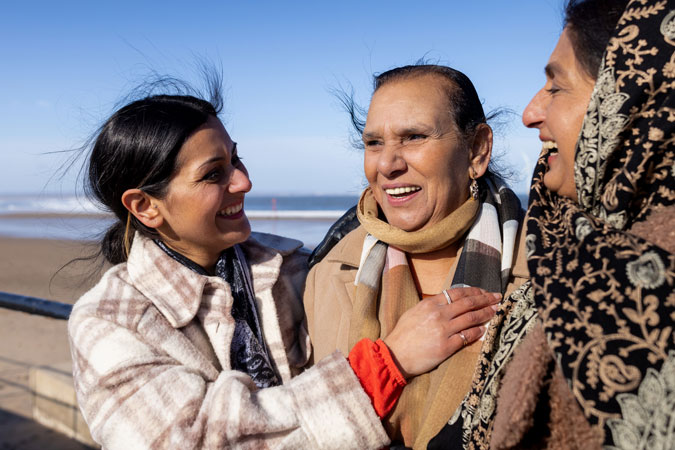
Why are UK cancer cases rising in women but not men? Dr Vanessa Gordon-Dseagu explores the evidence
Find out moreAlthough the number of cases significantly increased among women but not men, this still meant an overall increase of 2%. There could be several reasons for this, for example, changes in behaviour that began decades ago. An example of this would be rates of smoking declining earlier in men than women, with lung cancer incidence subsequently peaking much earlier in men than women.
Behaviour and prevention key
This shows that behaviour and prevention remain a key factor in reducing cancer risk: 40% of cancers could be prevented through changes in modifiable risk factors and behaviours. These include eating a healthy diet, limiting alcohol, maintaining a healthy bodyweight, and not smoking. Therefore around 158,000 cancer cases in the UK could be prevented a year.
Breast cancer remains the most common type of cancer among women in the UK, and the most common overall, with 59,115 new cases in 2021. This means that 3 in 10 new cases of cancer in women in 2021 were breast cancer (30%). Meanwhile, prostate cancer is the most common cancer among men in the UK. In 2021, 51,575 cases of prostate cancer were diagnosed – accounting for just over a quarter (26%) of all new cases of cancer in men in the UK.
Dr Vanessa Gordon-Dseagu, a consultant with our Research Interpretation team, said:
“While the total number of cancers is still higher among men than women, the latest increases among women, and decreases among men, suggest that this difference is declining quite rapidly.
“It is likely that any changes in the number of new cases are partially explained by behaviour. This will be particularly true for those cancers for which there is strong evidence that behaviour increases risk. For example, smoking increasing lung cancer risk or processed meat and alcohol increasing bowel cancer risk. Following our Cancer Prevention Recommendations can help people reduce their cancer risk.”
About World Cancer Research Fund
World Cancer Research Fund examines how diet, nutrition, weight and physical activity affect people’s risks of developing and surviving cancer. As part of an international network of charities, we fund life-saving research, influence policy and raise public awareness. Our work helps prevent cancer and enables people to live longer, healthier lives.
Preventing Cancer. Saving Lives
Governments, researchers and organisations (including World Cancer Research Fund) need to keep track of how the number of cancer cases in the UK changes from year to year. This helps with the planning, development, and undertaking of cancer research and evidence-based policy.
Each of the 4 devolved nations of the UK (England, Northern Ireland, Scotland and Wales) regularly report cancer incidence, as well as mortality, through their Cancer Registries. World Cancer Research Fund then uses these data to produce detailed cancer incidence and mortality tables and publishes this information on our website. At the same time, we analyse the data to see how cancer numbers are changing.
Comparing cases of cancer in the UK from 2019 to 2021
In 2021, the most recent year for which data are available, there were 395,181 cases of cancer in the UK. Of these, 200,870 were in men (up very slightly from 200,386 in 2019) and 194,311 in women (up from 187,434 in 2019).
Cancer cases: 2019 and 2021
| Men | Women | Total | |
|---|---|---|---|
| 2019 | 200,386 | 187,434 | 387,820 |
| 2021 | 200,870 | 194,311 | 395,181 |
In terms of percentage changes, cancer incidence among women increased by 3.7% between 2019 and 2021 but stayed pretty much the same for men (increasing by only 0.2%). This means that while the number of cases only increased significantly among women, there was still an overall increase of approximately 7,400 cases, or 2%.
So, although men still experience more cases of cancer than women, the difference in the number of cases between the sexes fell from approximately 12,900 in 2019 to approximately 6,500 in 2021.
How are cases of the most common cancers changing in men and women?
Breast cancer remained the most common type of cancer among women in the UK, with 59,155 new cases in 2021 – approximately 30% of all cancers. This was followed by lung (23,972) and colorectal cancer (21,945). Our analysis shows that, between 2019 and 2021, cases of all 3 increased in women.
Among men, prostate cancer was the most common cancer in the UK. In 2021, 51,575 cases of prostate cancer were diagnosed – approximately 26% of all new cases of cancer – followed by colorectal (27,969) and lung (24,932). While cases of prostate and lung cancer decreased, colorectal cancer cases increased.
Cases of the top 3 site-specific cancers in the UK in 2019 and 2021
| 2019 | 2021 | |
|---|---|---|
| Women | ||
| Breast | 56,601 | 59,115 |
| Lung | 23,614 | 23,972 |
| Colorectal | 20,759 | 21,945 |
| Men | ||
| Prostate | 55,068 | 51,575 |
| Colorectal | 25,303 | 27,969 |
| Lung | 25,140 | 24,932 |
Why is the overall number of cancer cases increasing in women but not in men?
There could be several reasons for this. One of the most important is that approximately 40% of all cancers could be prevented by changes in modifiable risk factors – things in our behaviour or environment that can be changed and make the development of cancer more or less likely. For 2021, this would equate to approximately 158,000 cases of cancer prevented.
When we talk about modifiable risk factors for cancer, these include not smoking, avoiding the sun, maintaining a healthy body weight, being physically active, and eating a healthy diet.
> More information about what is included in a healthy diet
Simply put, it is likely that any changes in the number of new cancer cases are partially explained by changes in the rates of these behaviours. This will be particularly true for those cancers for which there is strong evidence that behaviour increases risk. One recent example of this is rates of smoking declining among men while still increasing among women. As a result, it is predicted that cases of lung cancer among women will outnumber those among men in the next couple of years.
The links between modifiable behaviours and cancer are supported by a growing body of research demonstrating that following our Cancer Prevention Recommendations can help people reduce their cancer risk.
Here is our year in numbers
1 shared vision to stop preventable cancer
Estimated figures show that approximately 40% of cancers could be prevented by modifying key risk factors such as smoking, poor diets, obesity, low physical activity levels, and alcohol consumption.
Our Research Interpretation team have worked hard to deepen our understanding of the factors influencing the risk of developing, and the chance of surviving, a cancer.
5 CUP Global Panel meetings on the risk factors cancer incidence and survivorship
We have met with our CUP Global Expert Panel (a group of world-renowned independent experts from a variety of disciplines) to discuss the scientific evidence that early life body measurements affect later risk of developing breast cancer, as well as the evidence of the impact of physical activity, diet and adiposity (fatness) has on quality of life after a colorectal cancer diagnosis.
We have also formulated new recommendations for the public on the impact of various dietary lifestyle patterns on cancer incidence, following our discussions with the CUP Expert Panel.
99 associations reviewed by the CUP Global experts
There are many modifiable factors that may be associated with developing cancer, or worsen cancer prognosis after diagnosis. This year, we reviewed 99 of them from across the cancer survivorship and cancer incidence evidence.
2 reports published on cancer survivorship
This year, we released 2 reports that summarise the complex evidence on diet, nutrition, physical activity and body weight for people living with and beyond breast and colorectal cancers. Drawing on that evidence and additional inputs from experts, health professional and patients, we produced practical guidance for patients.
We now recommend that, “after a breast cancer diagnosis, people are physically active. However, physical activity should be increased under the supervision of healthcare professionals”. We also outline recommendations for future research, as lots remains to be done in this field.
9 peer-reviewed papers; 5 published, 4 under review.
Five CUP Global peer-reviewed papers have been published this year in academic journals, to share our findings with the scientific community.
Three of them reported on the impact of sedentary behaviour, body fatness, or dietary factors and supplement use after a colorectal cancer diagnosis, while a 4th paper summarised the strength of this evidence. Our CUP Global findings on the effect of dietary and lifestyle patterns and breast cancer incidence were also published in 2024.
Another 4 manuscripts are under peer review. They report on the latest CUP Global work, including the effect of both dietary and lifestyle patterns and early life body size on colorectal cancer risk.
1 new gateway on Health Open Research
Keeping our work transparent is important. A benefit of having a gateway on a site such as Health Open Research is that it allows a central space for us to hold our research outputs and makes them openly available to everyone interested in our work. Check it out here!
16 conferences and events dissemination events
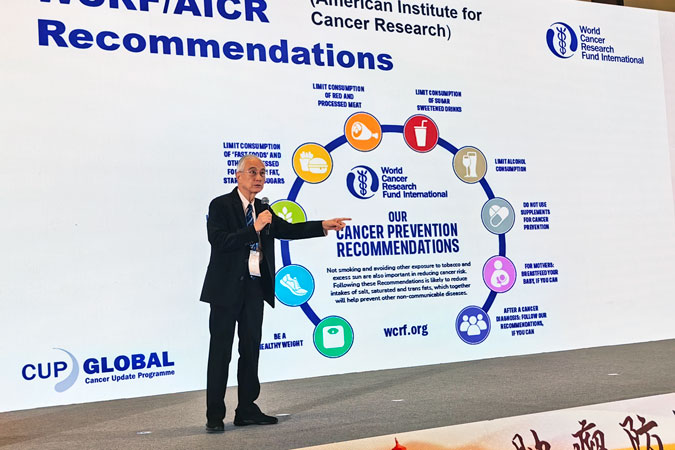
Professor TH Lam speaking at the Chinese Anti-Cancer Conference
Our CUP Global findings were presented on many occasions and to various audiences (the scientific community, health professionals, the public, students and our supporters) across the globe this year.
- At both the World Cancer Congress during a symposium, a rapid firerapid-fire session and a symposium, the 4th Nutrition and Cancer Conference, the Oncology Professional Care conference, and the Chinese Anti-Cancer Conference.
- Throughout 8 lectures at UCL, ICL, and Oxford Brookes, and a 3-day course at Wageningen University & Research
- During a webinar hosted by Breast Cancer Now
- At 2 WCRF supporters’ events in Manchester and Exeter
1 European Code Against Cancer
We contributed to the development of the European Code Against Cancer, an initiative of the European Commission to inform people about key risk factors for cancer.
2 strengthened methodologies
- We have strengthened the way we draw on our collaborators’ expertise when exploring the biology underpinning the link between diet, nutrition, physical activity and body weight, and cancer. This will deepen our understanding of how nutrition-related factors operate inside the human body to influence the onset of cancer.
- CUP Global is also now equipped with a new way of identifying what evidence, among all the research being produced globally, is worth looking at to best strengthen or expand our recommendations for cancer prevention and survival. We have identified 6 topics whose influence on cancer risk will be explored further within CUP Global:
- ultra processed foods,
- tea,
- coffee,
- sugary drinks (including artificial sweeteners),
- soy (isoflavones) and
- sedentary behaviour.
Looking forward to 2025
We will keep disseminating our CUP Global outputs on cancer survivorship dietary lifestyle patterns and on our imminent early life anthropometry findings. This is to ensure that the public, patients, health professionals, researchers and policymakers are informed about actions they can take. We are looking forward to presenting some of this work at the International Congress of Nutrition in Paris, in August 2025.
We won’t stop trying to further our understanding of the modifiable factors that shape the risk of developing, and the chances of surviving, cancer. With the 6 topics identified for CUP Global in 2025, we can’t wait to share findings from this research and learn more about the best way to prevent cancer.
This year, we’ve been driving policy change to prevent cancer and improve public health globally and locally. Here are some of our highlights:
Global advocacy and engagement
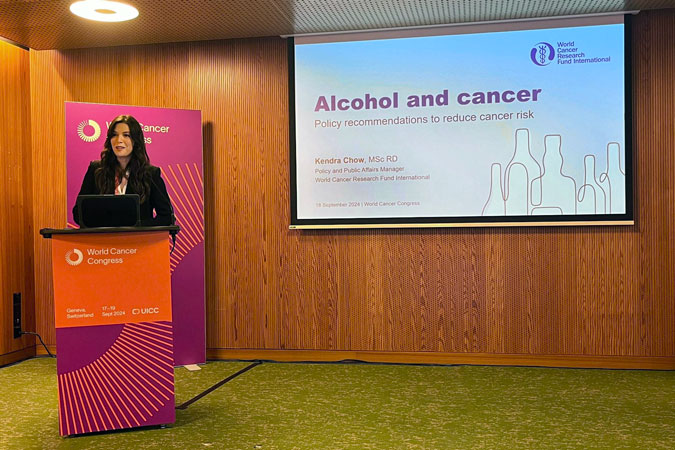
Kendra Chow at WCC 2024
As part of our official relations status, we continue to work closely with the World Health Organization (WHO). This year was exceptionally busy as we expanded our engagement across 6 WHO teams and attended the Executive Board and World Health Assembly, where we made interventions (“statements”) across many agenda item areas.
- WHO Executive Board Statements: 7, including on wellbeing and health promotion, and social determinants of health.
- WHO World Health Assembly: delivered 6 impactful statements, 6 meetings with WHO officials and 5 meetings with civil society.
- WHO meetings: 5 meetings throughout the year with WHO staff to discuss collaboration.
- WHO consultations: contributed to 5 consultations including the WHO Director General report for the fourth UN High-Level Meeting (HLM) on non-communicable diseases (NCDs), and on Non-State Actors in official relations.
- Mission meetings and briefings: held meetings with 7 different country missions and developed 1 detailed mission briefing on our key priorities for the World Health Assembly.
Policy development and thought leadership
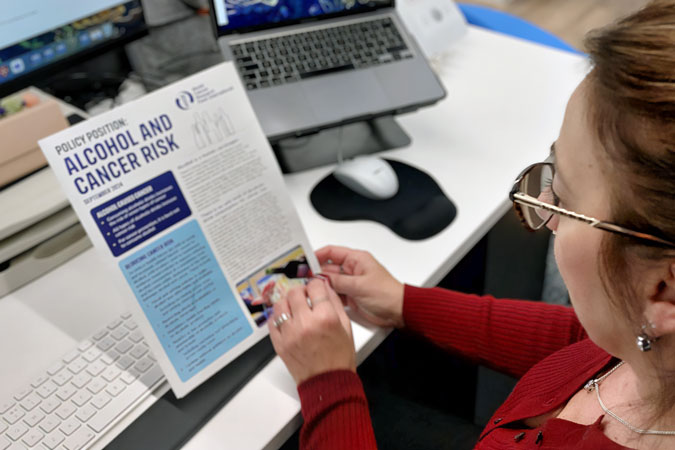
Our Alcohol and Cancer Risk brief
We advanced our policy work by publishing a major policy position, monitoring emerging issues, responding to consultations, contributing to a parliamentary inquiry, and launching new advocacy priorities in the UK. We’ve also continued to promote and advance our CO-CREATE project outputs.
- Published our comprehensive Alcohol and Cancer Risk policy position (which has been downloaded over 2,000 times!), along with a new dedicated section on our website.
- Monitored developments and engaged experts on the links between ultra-processed food and cancer.
- Responded to 1 international (on Norway’s forthcoming marketing restrictions) and 5 UK consultations (including the National Planning Policy Framework, which looks at how planning system can help our communities to be healthier).
- Provided evidence (PDF) to the House of Lord’s Select Committee on Food, Diet and Obesity.
- Introduced new policy priorities in the UK, strengthening our cancer prevention advocacy.
- 3 external partners utilised our NOURISHING and MOVING policy frameworks and tools, including the OECD, which used data from our NOURISHING and MOVING policy briefs for its 2024 report Beating Cancer Inequalities in the EU.
Communications and awareness
We enhanced our communications by redeveloping our website, producing podcasts and blogs, publishing newsletters, and co-signing advocacy letters to key policymakers.
- Redeveloped and revised all the Policy pages on our new website and developed a new resource library to house our statements, consultations, reports and policy tools.
- Featured in Movendi International’s podcast episode on How WCRFI Wants to Galvanize Governments to Address Alcohol’s Direct Link to Cancer.
- Published 10 blogs including a closer look at alcohol labelling, infant formula and baby foods, commercial determinants and this 2024 wrap-up.
- Published 13 monthly newsletters and newsflashes to over 1,100 subscribers.
- Endorsed 9 letters to the Prime Minister, Secretary of State for Health and Social Care, and Parliamentary Under-Secretary of State for Public Health and Prevention advocating policy change in the UK.
Collaboration and representation
We strengthened our advocacy by participating in major conferences, maintaining global research partnerships, hosting advisory meetings, and contributing to the development of key policy recommendations.
- Participated in 5 major conferences (European Congress on Obesity, World Cancer Congress, World Health Summit, International Society for Physical Activity and Health, European Public Health Conference). We also attended the Labour Party conference in the UK for the first time.
- Maintained valuable research partnerships with organisations around the world and hosted 2 Policy Advisory Group meetings.
- Continued contributing to the development of the policy recommendations that will accompany the forthcoming 5th European Code Against Cancer.
Team updates
We’ve had some changes in our team too.
Hellos and goodbyes: said farewell to Jennifer O’Mara, our Senior Policy and Public Affairs Officer, and Rebecca Taylor, our maternity cover Head of Policy and Public Affairs; and welcomed back our Head of Policy and Public Affairs Kate Oldridge-Turner. We look forward to our new Senior Policy and Public Affairs Officer, Melissa Dando, joining us in the new year.
Looking ahead to 2025
- We’re excited to launch our Policy Blueprint for Cancer Prevention in the new year – a new resource that draws together our Cancer Prevention Recommendations with our policy recommendations. Join us at the launch on 29 January 2025.
- Cancer Prevention Action Week: Join us for our week-long awareness raising campaign on alcohol and cancer risk in June 2025.
- We’ll be actively engaged in the 4th UN HLM on Non-Communicable Diseases, taking place in September 2025. Our focus will be for cancer prevention commitments to be included in the Political Declaration.
- 5th European Code Against Cancer: we’ll be supporting the launch of the new code in September 2025.
Thank you for your continued support – we are grateful for all the collaborations with our partners. Here’s to another year of impactful advocacy and policy work in 2025! Don’t forget you can sign up to our monthly newsletter straight into your inbox.
Missing someone special is always difficult, but the “hype” we hear as others plan ahead for Christmas can make 25 December even more difficult for those of us who are missing loved ones who have died and who we would have spent this special day with.
Every bereavement is unique, as is every person, so there’s no magic formula for how best to deal with bereavement. We could feel a mix of emotions – sadness, anger, guilt or even moments of joy when we think back to happier times when we enjoyed the time of year with the person, or people, we now miss.
At World Cancer Research Fund, we have a memorial bauble, which we supply primarily to our supporters but can give to anyone who is remembering someone special this Christmas. We understand many of our supporters are bereaved, and that Christmas can be a difficult time of the year, and one where the loss of someone loved is felt very strongly.
Remember that healing takes time, and the first holiday season is often the hardest. Be patient and gentle with yourself. If you’re really struggling, please don’t hesitate to reach out to a grief counsellor or mental health professional for additional support, or visit one of the helpful websites listed below.
Love that turns to grief

We’ll never forget those who have been a part of our lives who have died, but while grief doesn’t diminish, over time, our world instead gradually grows larger around it. A bit like a river that doesn’t narrow but carves new channels and finds new paths to go forward while still carrying those deeper waters.
It’s nice to have memories of people who brought you joy in previous Christmasses’, even if tinged with sadness that they’re no longer here. It’s OK to be sad at their absence, but it’s also important to try to embrace the spirit of the season they would want for you. You don’t have to feel guilty if you do find moments of joy, and you don’t have to apologise to yourself or others if, in a quiet moment of reflection, you are sad.
When we love someone and they die, that love turns to grief. Sharing memories of them, speaking about them, and perhaps using one of our memorial baubles, allows us to keep their memory alive and remember those we love as we take our own journey through life.
“Be happy that we met, not sad that I am gone” is a sentiment used much in bereavement and captures the essence of what enduring love means. It’s like they’ve left you one final gift of wisdom: to treasure the blessing of having had them in your life at all.
- We encourage people in need of extra support to contact Cruse Bereavement Support on 0808 808 1677 or Mind on 0300 123 3393.
We’re delighted to announce £4m of funding to help more people prevent and survive cancer, in the latest round of grants awarded by World Cancer Research Fund International.
Dr Charlotte Le Cornet is looking at how persistent organic pollutants (POPs) – pollutants that are produced or released during industrial or agricultural processes – affect a woman’s risk of breast and womb cancers. Dr Le Cornet is using data in the European Investigation into Cancer and Nutrition cohort.
Prof Reginald Adjetey Annan is our first ever principal investigator who is from, based in, and researching in Africa. Prof Annan, at Ghana’s Kwame Nkrumah University of Science and Technology, will look at breast cancer among sub-Saharan women. Prof Annan took part in a grant writing course for researchers in Africa organised by Cancer and Nutrition in Africa as an initiative of the International Collaboration on Nutrition in relation to Cancer, which we helped fund in 2023 and 2024.
The grant writing course for researchers in lower- and middle-income countries (LMICs) aims to produce successful grant applications that address unmet needs and focus on understudied populations within these countries. Our investment in such initiatives underscores our commitment to fostering research excellence in LMICs and advancing global health equity.
We fund 2 types of projects: our Regular Grant Programme for established senior scientists, and our INSPIRE Research Challenge for scientists starting out on a career in cancer research.
Our grants are managed by World Cancer Research Fund International on behalf of our network funders: World Cancer Research Fund in the UK, and Wereld Kanker Onderzoek Fonds in the Netherlands. Our network partner, American Institute for Cancer Research, runs a separate grant call for researchers based in the Americas.
Our 2024 Regular Grant Programme awards in full
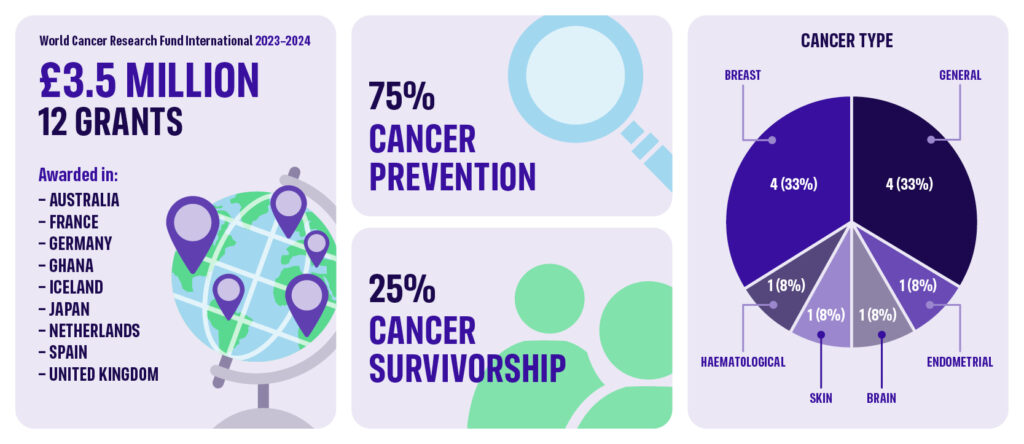
- Associate Prof Kara Britt, University of Melbourne, Australia, £349,995.01: Mapping the impact of obesity on the normal breast
- Dr Laure Dossus, International Agency for Research on Cancer, France, £349,567: Role of perturbations of cholesterol metabolism in breast cancer development
- Assistant Prof Kalijn Bol, Radboud University Medical Center, Netherlands, £349,300: Dietary fibre to induce gut microbiota-mediated response to immunotherapy in melanoma (FIGURE-IM)
- Prof Reginald Adjetey Annan, Kwame Nkrumah University of Science and Technology, Ghana, £348,256.56: Metabolic syndrome, gut microbiome, and breast cancer risk among sub-Saharan African women: the African Breast Cancer Screening (ABCS) study
- Dr Sæmundur Rögnvaldsson, University of Iceland, £340,297: Understanding the role of obesity and nutrition in the development of multiple myeloma from its precursors
- Dr Tammy Tong and Dr Keren Papier, University of Oxford, UK, £317,552.13: ProMAP: mapping diet to cancer through the proteome
- Dr Emma Vincent, University of Bristol, UK, £288,577.63: How does adiposity distribution influence risk of obesity-related cancers? Exploring causality and mechanisms
- Prof Roger Milne, Cancer Council Victoria, Australia, £288,407: Diet, weight and physical activity and risk of glioma: an international cohort study pooling project
- Dr Sarah Abe and Dr Manami Inoue, National Cancer Center, Japan, £285,682: Evaluation of the 2018 WCRF/AICR Cancer Prevention Recommendations for use in Asia using pooled data from the Asia Cohort Consortium
- Dr Charlotte Le Cornet, German Cancer Research Center (DKFZ), £272,589.54: Dietary related persistent organic pollutants (POPs) circulating concentration, BMI, endometrial and breast cancer risk
- Dr Anouk Hiensch, University Medical Centre Utrecht, Netherlands, £250,984.74: Uncovering the underlying mechanisms: deciphering exercise’s impact on cancer-related fatigue in patients with metastatic breast cancer
- Dr Lorena Arribas Bellvitge, Biomedical Research Institute – IDIBELL, Spain, £60,000: Weight management in obese cancer patients during curative active treatment (CANOBESE study)
Our 2024 INSPIRE Research Challenge awards in full
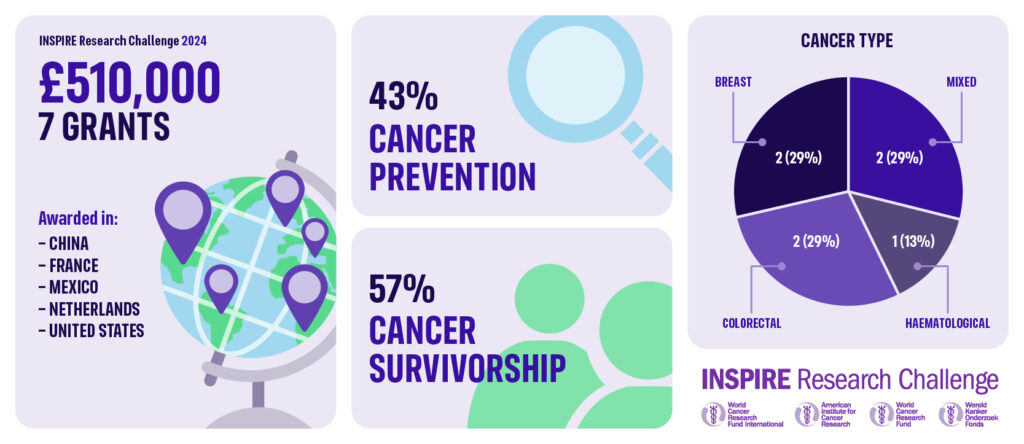
- Dr Forrest Baker, The University of Arizona, US, £75,000: Harnessing γδ t-cell therapies with exercise to treat multiple myeloma
- Dr Fernanda Mesa Chávez, Centro Medico Zambrano Hellion, Mexico £75,000: Online mindfulness-based stress reduction intervention for patients with breast cancer receiving chemotherapy
- Dr Baoting He, University of Hong Kong, China, £75,000: Gut microbiota and cancer risk in east Asians: a two-sample Mendelian randomization study
- Dr Evertine Wesselink, Wageningen University, Netherlands, £74,995: Connecting the dots: examining the relationship between lifestyle, immune-related tumour characteristics and colorectal cancer recurrence
- Dr David van Dijk, Maastricht University, Netherlands, £74,918.64: Insulin resistance as driver of myosteatosis in colorectal cancer
- Dr Felix Onyije, International Agency for Research on Cancer, France, £74,751.20: Occupational night shift work and sleep imbalance and the risk of testicular germ cell tumours in men and ovarian cancer in women
- Dr Yahya Mahamat-Saleh, International Agency for Research on Cancer, France, £60,000: Identification of novel metabolic signatures related to stressful life events and breast cancer risk and survival
A new study funded by World Cancer Research Fund has found that activity throughout the day, with peaks in the morning and late afternoon, correlated with an 11% reduced risk of developing colorectal (also known as bowel) cancer, compared with other patterns of exercise studied.
This study used accelerometer data (which measures movement) to analyse daily activity. It used a statistical method that examines all of the data and finds common patterns, and how those patterns might be related to the risk of colorectal cancer.
Researchers from Regensburg University utilised data from the UK Biobank, which had contacted 86,252 randomly selected individuals (56% of them women), asking them to wear accelerometers to track their movement over 1 week and following them for 5 years to monitor the development of colorectal cancer. When studying the data, researchers identified a 2-peak pattern of daily physical activity associated with reduced colorectal cancer risk.
The researchers identified 4 different patterns of physical activity throughout the day:
- Continuous day-long activity
- Activity later in the day
- Early and late-day activity
- Activity in the middle of the day and during the night
The 3rd pattern, where people were active both in the early and late parts of the day, was associated with an 11% lower risk of colorectal cancer, compared with 6% for day-long activity and no change for middle of the day and the night. Data from activity later in the day only was inconclusive. These findings held true even when considering factors such as smoking, shift work and other variables that could affect a person’s cancer risk.
Impact on sedentary lifestyles
In addition, the researchers found that a day-long activity pattern most effectively reduced colorectal cancer risk among individuals who were more sedentary. This may be because the effect of physical activity becomes more obvious when contrasted with a previously more inactive lifestyle, meaning that those who are fit and healthy are already at a reduced level of cancer risk. These findings show how beneficial physical activity can be, especially in those who are more sedentary.
Dr Helen Croker, Assistant Director of Research and Policy at World Cancer Research Fund, said:
“Being physically active is one of our Cancer Prevention Recommendations, and we know that this cuts cancer risk. These intriguing new findings offer potential for developing more specific recommendations, including patterns and timing of physical activity, for reducing cancer risk. This shows the vital importance of World Cancer Research Fund continuing to support research that expands our knowledge to inform cancer prevention going forwards.”
Prof Michael Leitzmann, Chair of the Department of Epidemiology and Preventive Medicine at the University of Regensburg, Germany, who was the lead investigator in the study, said:
“Our study highlights that not only is physical activity important for reducing colorectal cancer risk, but the timing of peak activity throughout the day could play a crucial role. By identifying specific times – early morning and late day – when physical activity is most beneficial, our findings open new avenues for targeted prevention strategies. If confirmed by future research, this could provide a simple yet impactful way for individuals to further reduce their cancer risk through the timing of their exercise.”
Read the paper
Stein, M.J., Baurecht, H., Bohmann, P. et al. Diurnal timing of physical activity and risk of colorectal cancer in the UK Biobank. BMC Med 22, 399 (2024).
About the UK Biobank
The UK Biobank is a large, population-based prospective study, established to allow detailed investigations of the genetic and non-genetic determinants of the diseases of middle and old age. It has 500,000 UK participants between the ages of 40–69.
About the University of Regensburg
The University of Regensburg is a nationally and internationally renowned comprehensive university with an excellent research spectrum, an attractive range of courses and a high sense of social responsibility. The UR stands for diversity, openness to the world and shaping the future. Its research strength is demonstrated by 6 Collaborative Research Centers funded by the German Research Foundation (DFG) and 9 grants from the European Research Council.
In 2017, the Institute for East and Southeast European Studies (IOS), an affiliated institute of the UR, was the first institution in Regensburg to be accepted into the renowned Leibniz Association, followed in 2022 by the Leibniz Institute for Immunotherapy, which emerged from the Regensburg Center for Interventional Immunology. In May 2024, the Regensburg Center for Ultrafast Nanoscopy opened at the university, where the ultra-fast quantum movements of atoms and molecules are researched using innovative, high-resolution slow-motion cameras. In spring 2022, the Science Council recommended funding for the Center for Immunomedicine in Transplantation and Oncology at the UR, a center for basic research in immunomedicine.
Today the UK House of Lords’ Food, Diet and Obesity Committee published Recipe for health (PDF), a report which boldly outlines a range of far-reaching recommendations to transform our food system.
We strongly urge the UK government to take forward these recommendations given the state of the nation’s diet and the impact on our health. The UK’s national diet is high in saturated fat and sugars, which leads to obesity, a risk factor for 13 types of cancer. The report correctly highlights the gravity of this challenge in both its analysis and recommendations.
Steps to curb industry involvement
Many of the Committee’s recommendations are reflected in our own evidence. For example, we welcome the Committee’s recommendations around mandatory measures and targets to improve the nutritional quality of our food. This includes calls to restrict the exposure to junk food advertising and address misleading marketing, especially of infant and children’s foods. Steps to curb industry involvement and influence in policymaking are particularly welcome to avoid regulations being watered down.
The call on government to support additional research on ultra-processed foods (UPF) and why they are impacting our health is also important, and will bolster the evidence-base that organisations like World Cancer Research Fund are already investing in.
For too long, our health has been impacted by an abundance of poor-quality foods, leaving many people at risk of developing preventable cancers. It is time for the government to make good on its commitment to prevention and take forward these recommendations in this cross-party report.
> The House of Lords committee report: Recipe for health: a plan to fix our broken food system
> Our evidence submission: WORLD CANCER RESEARCH FUND INTERNATIONAL – WRITTEN EVIDENCE (FDO0030) (PDF)
